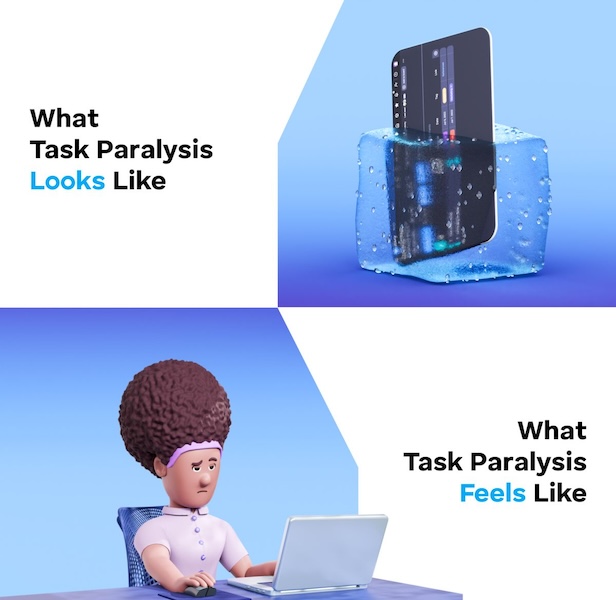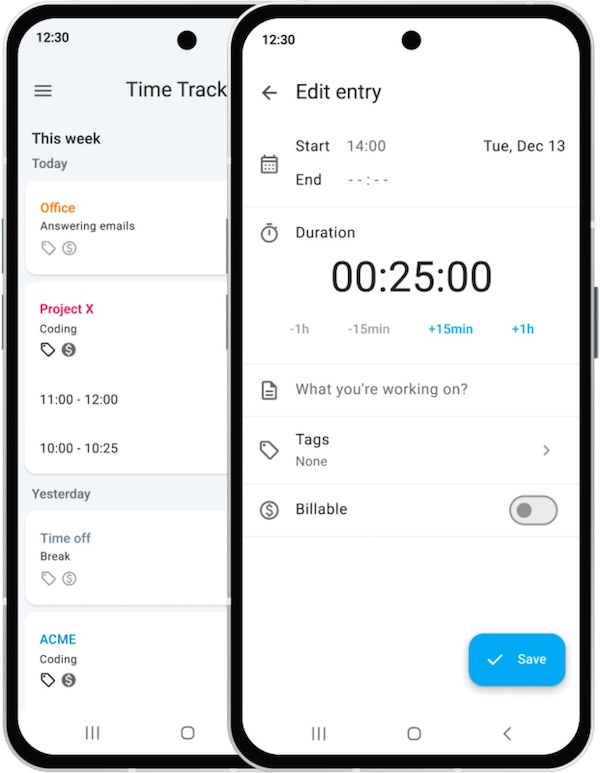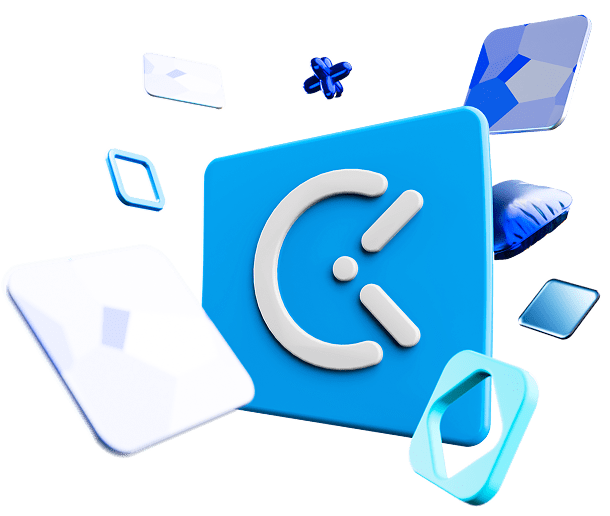Nowadays, many people wonder if ADHD is to blame for their lack of motivation and focus at work.
While self-diagnosing is never a good idea, the trend has made one thing clear to everyone:
There’s an undeniable link between ADHD and motivation.
In this article, we’ll explore how ADHD and motivation interact and offer practical ways for a person with ADHD to stay productive at work.

Tune out ADHD stigma to boost your motivation
People with ADHD and motivation struggles are often scrutinized at work, which can damage their already low motivation.
Addressing common misconceptions about the disorder, ADHD specialist Jess Pliszka shares her professional insights:

“Society believes that ADHDers are lazy and unmotivated, using their ADHD as an excuse rather than understanding the challenges ADHDers face on a daily basis.”
She further details how the stigma affects motivation in ADHDers:

“These harmful stereotypes increase feelings of shame and guilt within the ADHDer’s mind and decrease self-esteem. Understandably, their motivation levels can drop, and their fear of judgment or failure increases.”
Despite social prejudice, science validates the challenges ADHD brings.
Mental health professionals have recognized 3 symptoms of ADHD that can impact your motivation and work efficiency:
- Inattention — difficulty to stay focused on tasks,
- Hyperactivity — need to fidget or talk restlessly when inappropriate, and
- Impulsivity — the tendency to act without thinking.
But remember, your diagnosis doesn’t define you — your determination to succeed at work does.
Below are some ways to successfully handle judgment and stay motivated in the workplace:
Solution 1: Licensed clinician Justin McLendon recommends building a support system:

“Seeking support from understanding colleagues or mentors can help improve self-esteem and reduce the negative impact of the condition. A more positive and motivated mindset can be fostered, which can lead to better productivity.”
Solution 2: Clinical director at a private healing center, Lisa Anderson, suggests seeking professional guidance:

“Therapy that focuses on ADHD can also help you shake off negative beliefs and rebuild your confidence.”
💡 CLOCKIFY PRO TIP
Discover what makes a workplace toxic and how to navigate an unhealthy work environment.
Improve work-life balance to keep your ADHD brain happy
Scientists suggest that the brain chemistry in individuals with ADHD may be contributing to low mood and draining motivation.
In fact, modern research on the chemical imbalance in ADHD brains points to a deficiency of norepinephrine and dopamine — chemicals that regulate your moods and behaviors. In particular, low norepinephrine levels hamper your ability to avoid distractions and stay focused on work.
On the dopamine-related effects of ADHD and motivation, ADHD specialist Jodi Pliszka offers her thoughts:

“Dopamine regulates reward and pleasure. Low levels of dopamine lead to challenges for ADHDers in feeling motivated, especially for tasks and goals that don’t lead to immediate gratification.”
Additionally, adults with ADHD often struggle with executive function — the productivity skills that help them plan, organize, and regulate their behavior to reach goals.
Nonetheless, you can rewire your brain by learning how to motivate yourself in and out of work.
So, try implementing productive practices for the mind and body to stay mentally sharp and happy:
Solution 1: Individuals with ADHD feel the need for constant movement, so why not put it to good use? Regular exercise after work is a proven way to boost dopamine levels, no matter the health problem.
Solution 2: According to expert Jodi Pliszka, ADHDers can achieve a healthy work-life balance through micro-goal setting:

“The best way to improve their life experience is to develop strategies, such as micro-goal setting (breaking goals down into smaller, ‘bite-sized’ tasks that are more achievable), which feels more rewarding, thus boosting motivation levels.”
Ultimately, feeling fulfilled in and outside the workplace will rekindle your motivation and lead to higher productivity.
💡 CLOCKIFY PRO TIP
Master the ins and outs of the time-blocking technique to support a better work-life balance.
Overcome ADHD paralysis with task prioritization and time management
The trouble with ADHD and motivation becomes clearer when ADHD paralysis kicks in — a brain shutdown that occurs when excess information overwhelms you.
Consequently, this “brain crash” can knock the motivation right out of you.
Mental health experts also call it task paralysis, where you freeze up when faced with daunting tasks.
Professional input from Jodi Pliszka summarizes the experience of this sensation as one that stumps motivation:

“It’s a sense of being overwhelmed and unable to begin a task. This inhibits a person’s motivation, leaving them feeling bad about themselves. Often, inaction occurs when a task seems too big to perform or too complex to figure out, leading to feeling afraid of not meeting the expectations of others.”
Eventually, task paralysis can trigger the fear of being seen as a procrastinator in your workplace.

But there’s a way out of this deadlock.
In addressing task paralysis prevention, clinical psychologist Julie Landry explores the connection between ADHD and task urgency:

“Someone with ADHD understands the importance of tasks, but may struggle to initiate them until faced with a deadline and the resulting sense of urgency.”
To overcome ADHD paralysis and regain motivation (and productivity), focus on task prioritization and effective time management:
Solution 1: Apply the Eat-the-Frog method. Do the most intimidating and important tasks first to prevent fear from suppressing your motivation — setting the stage for a more productive day.
Solution 2: Expert Justin McLendon recommends the Pomodoro method for staying organized and motivated despite your anxiety:

“The Pomodoro Technique, where you set a timer for short bursts of work, can help maintain focus by creating a sense of urgency and structure.”
💡 CLOCKIFY PRO TIP
Find out why time anxiety occurs and how to handle it in and out of the office.
Beat ADHD understimulation with a healthy work routine
Boredom hurts, as anyone dealing with ADHD and motivation issues will tell you.
In fact, ADHDers often struggle in traditional work settings when faced with tedious yet unavoidable tasks. Without occasional excitement to increase motivation, people with ADHD tend to get easily distracted.
That’s when work triggers ADHD understimulation, as expert Jess Pliszka explains below:

“The ADHD brain requires a great deal of stimulation, and when this is lacking, it leads to low motivation levels and decreased ability to focus. Tasks that require repetition lead quickly to boredom and distraction for ADHDers.”
In short, when work no longer inspires or holds your attention, your productivity drops, causing procrastination.
Hence, the problem is your unhealthy relationship with work.
Luckily, you can maintain a positive attitude toward tasks by implementing productive ways to make work more stimulating:
Solution 1: Eliminate motivation killers so that engaging activities (like listening to music) can better inspire you to work efficiently. For example, minimize digital distractions by turning off your phone and limiting desktop notifications.
Solution 2: According to expert Justin McLendon, individuals with ADHD should engage in activities that boost their motivation in the workplace:

“Incorporating stimulating activities or rewards into the work routine can address understimulation. This might include listening to music, using visual aids, or scheduling breaks for physical activity to re-energize the brain.”
💡 CLOCKIFY PRO TIP
Learn how to boost and maintain motivation for completing tasks, while ensuring a rewarding work experience.
Use Clockify for lasting motivation
People with ADHD and motivation challenges often rely on adaptability skills to fit in at work and get things done.
However, adaptability shouldn’t be a one-way street. Businesses should foster an inclusive environment that inspires career growth among employees with and without ADHD.
That’s where a versatile time organization tool comes into play.
With time trackers like Clockify, workers with different needs can improve how they plan their time around tasks — resulting in higher motivation and productivity.
This powerful yet affordable tool keeps you engaged by providing several options to monitor your workflow:
- Time tracker — create a list of completed activities as you track time for each task,
- Dashboard — view pie charts and graphs that show how much time you spend on activities, and
- Reports — get a detailed breakdown of your tracked tasks and projects, organized by day or week.
On top of that, Clockify recognizes the need to stretch your legs while working. The software’s mobile app allows adults with ADHD to log and track progress while on the go.

We understand that many workers struggle to maintain focus on projects, which is why Clockify offers stimulating, free features to help boost productivity.
With Clockify’s support, a person with ADHD can overcome motivation challenges and become their most productive self in the workplace.



